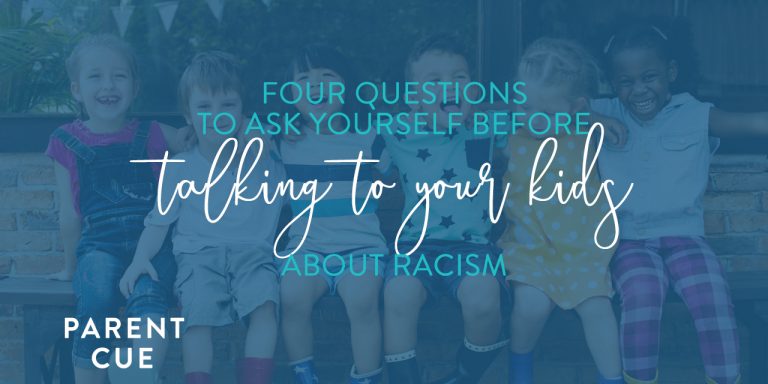
In light of the events in Charlottesville, many parents are reacting with uncertainty on how to talk about these disturbing and scary events with their kids. And while we want to address it, at the same time, we wish we could shelter them from ever witnessing anything so reminiscent of our dark and painful history.
But somehow, we know that part of the solution for change starts with us, and in the way we respond to these events. We also know that as parents, we have an opportunity to make a difference in this world through the incredible influence we have on our kids—who are watching, listening, and taking it all in—regardless of whether we intend for them to or not.
We also want to bring hope and comfort to our kids through our words and actions in these troubling times, so as you think about how to talk to your kids about these the realities and uncertainties of our world, we encourage you to ask yourself a few questions.
1. How are YOU processing your feelings?
In order to have honest conversations with our kids, we need to be honest with ourselves. Check your heart and your thoughts. Be sure to take a step back and identify how you might need to change in your prejudices and in your interactions with others. Reflect on what it really means to love those whom God loves, and unrelentingly pursue forgiveness and reconciliation. Your kids will get many of their cues from observing your response. Yes, they’re really watching and listening. Are your reactions and frustrations to what is happening betraying any subtle biases?
2. Do you celebrate diversity?
Some parents may be tempted to try to teach their kids to be blind to color, to shy away from acknowledging differences or just ignore them altogether. But the truth is that we are all very different in the way God made us—in our skin color, in our genetic makeup, and in our culture. And that’s something to be celebrated, not ignored. Do you model the belief with your words and actions that God made each of us unique and beautiful even in our differences? Do you demonstrate respect and honor towards those you disagree with? How diverse is your circle of friends and the people you associate with? How can you widen that circle for your family?
3. Are you talking about racism?
Racism is a difficult and sensitive topic, but it does exist, often in the form of subtle comments and prejudice, but sometimes it’s outright hatred and violence. Not talking about it doesn’t make it go away. So talk about the issues with others outside your circle and with people of different backgrounds. Discover the truth from various outlets and seek to understand other perspectives. When you find the right words that honestly and respectfully express how you think and feel, choose which words you might share with your kids.
Then talk to your kids about prejudice and racism so you can equip them with the values and the words they will need to respect, celebrate, and stand up for those who are being discriminated against.
4. Are you focused on love?
As parents, our hearts break in the shadow of these tragic events, and our anxiety, anger, and fear unfortunately leak out onto our kids. It’s okay to be honest with your kids, but it’s important to talk to them about how your family can respond to what’s happening in our world in a positive way.
As you navigate these important conversations, focus on what matters most: LOVE. Put love into action, and rest in the hope that is found there. And dole out love in especially large doses on your kids so they feel safe and secure. Hug them tightly and let them know that God is with them and they don’t have to be afraid. And neither do you.
For help with age appropriate conversations addressing recent events, check out this article: How to Talk to Your Kids About Racism: An Age-by-Age Guide
Source: The Parent Cue






